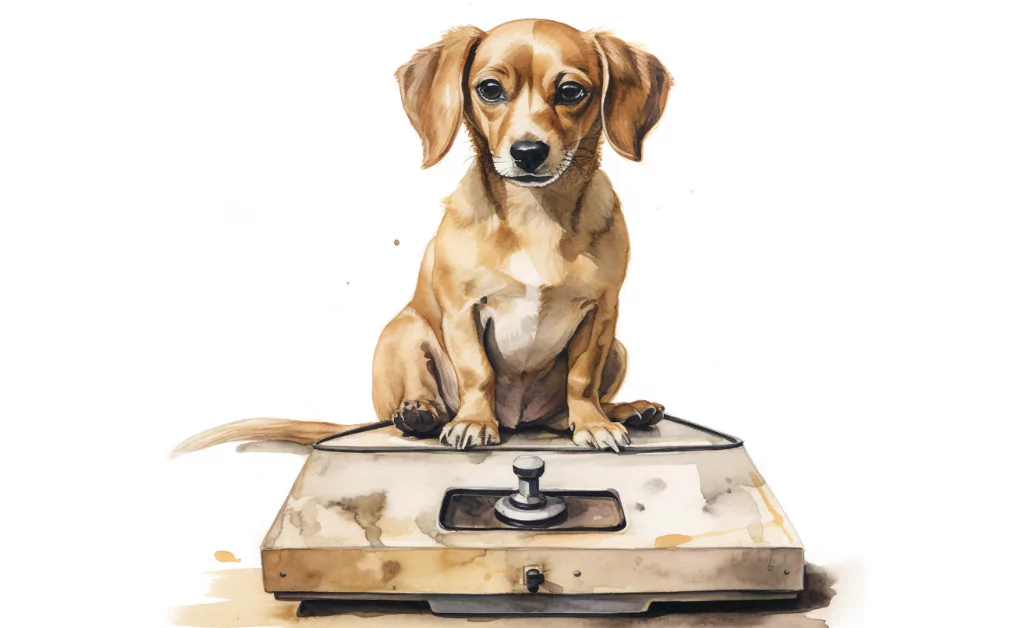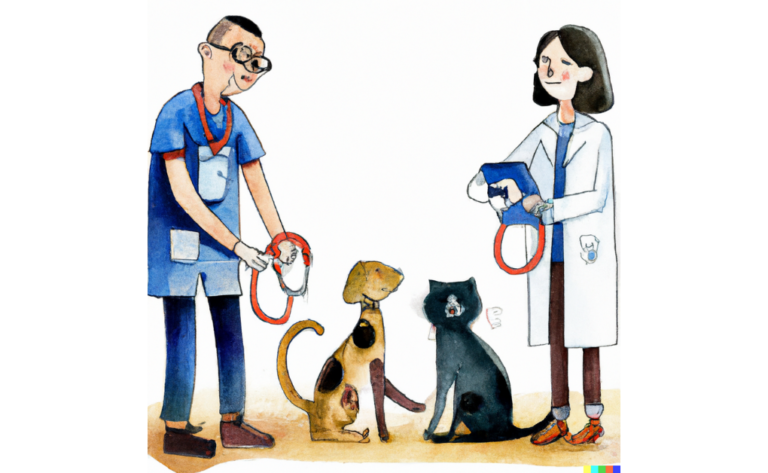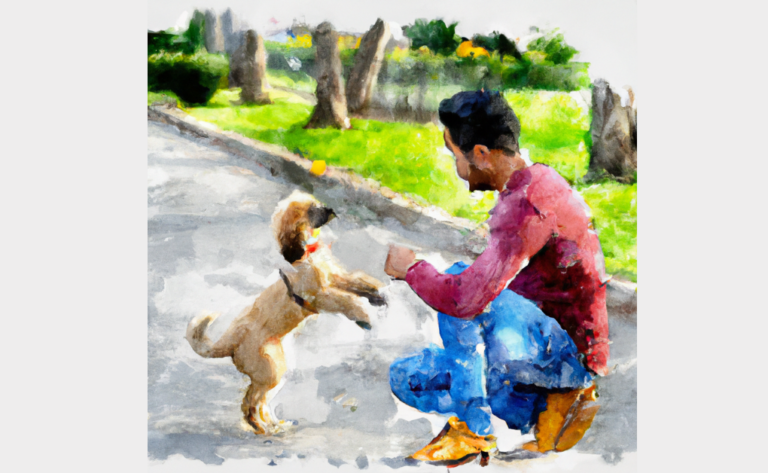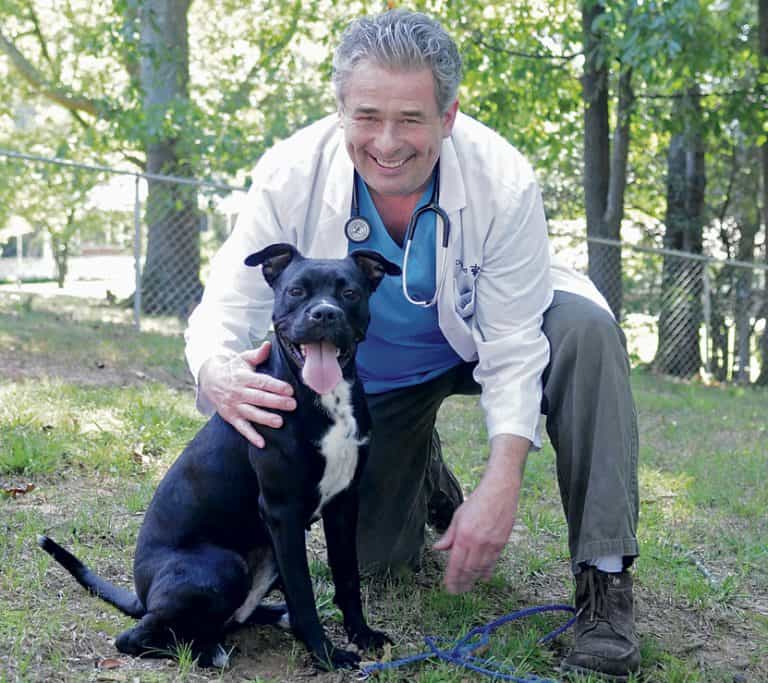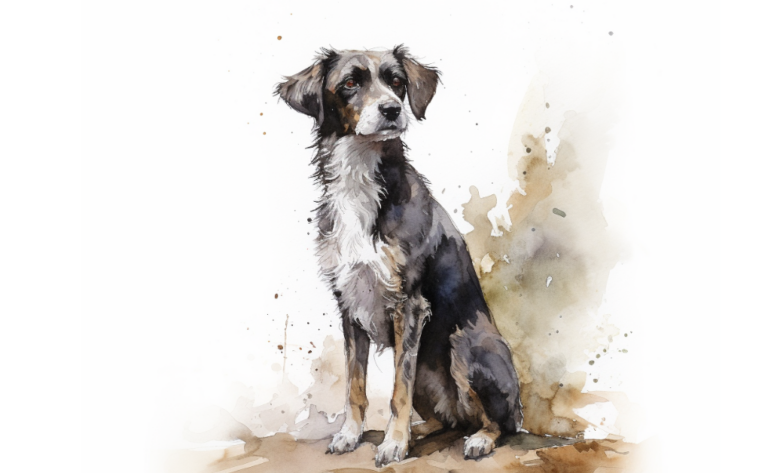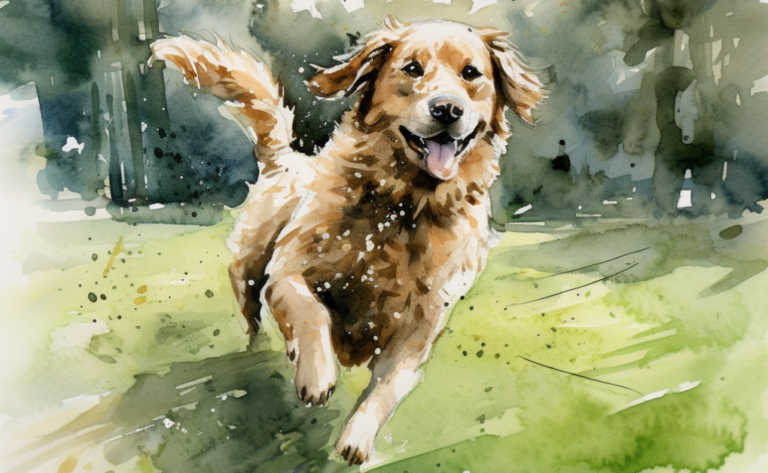Supporting Your Dog’s Journey to Gain Weight
As a loving pet parent, you want to ensure your canine companion’s optimal health, including maintaining an ideal weight. When your dog is underweight, providing them with the proper nutrition and care is essential to help them reach a healthy weight. Explore various strategies to support your dog’s journey to gain weight healthily, including understanding the reasons behind their low weight, choosing high-quality foods, and incorporating beneficial exercises. Together, we can help your furry friend achieve their weight goals, ensuring they live a happy and healthy life.
What is the Ideal Healthy Weight of a Dog?
A dog’s ideal weight varies depending on breed, age, size, and individual characteristics. Therefore, there is no one-size-fits-all answer for a dog’s ideal weight. However, you can use some guidelines to determine if your dog is in a healthy weight range.
- Body condition score (BCS): Veterinarians use the BCS system to evaluate a dog’s weight and overall body condition. This system rates a dog’s body condition on a scale of 1 to 9, with one being emaciated and nine being obese. A BCS of 4-5 is considered ideal, with a visible waist when viewed from above, ribs that are easily palpable with slight fat covering, and an abdominal tuck when viewed from the side.
- Breed-specific weight ranges: Dog breeds have specific weight ranges based on size and structure. For example, a Labrador Retriever’s ideal weight range may be between 55-80 pounds, while a Yorkshire Terrier may have a perfect weight range of 4-7 pounds. Consult a breed-specific weight chart or ask your veterinarian for the ideal weight range for your dog’s breed.
- Individual factors: Each dog is unique, and factors like age, activity level, and overall health can influence their ideal weight. Puppies and senior dogs may have different weight requirements than adult dogs. Active dogs may need to maintain a leaner body condition to support their energy needs.
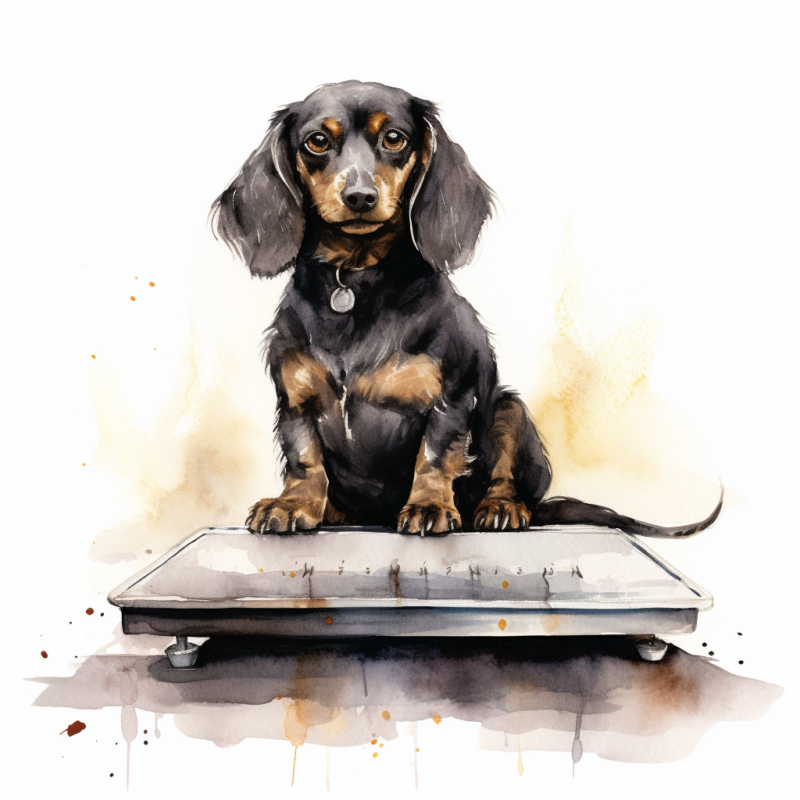
Always consult your veterinarian to determine your dog’s ideal weight, as they can assess your pet’s overall health and provide tailored recommendations. In addition, regular check-ups and monitoring your dog’s body condition can help them maintain a healthy weight throughout life.
What are the Signs That Indicate a Dog Is Underweight?
Signs that indicate a dog is underweight include:
- Prominent ribs, spine, and hip bones: If you can easily see and feel your dog’s ribs, spine, and hip bones without pressure, it may be underweight.
- Lack of muscle mass: An underweight dog may have decreased muscle mass, making their limbs appear bony or thin.
- Visible waist and abdominal tuck: While a visible waist and abdominal tuck are desirable in a healthy dog, an exaggerated waist or severe tuck might indicate that the dog is too thin.
- Low body condition score (BCS): A BCS is a scale to assess a dog’s overall body condition. A dog with a BCS of 1 to 3 is considered underweight.
- Low energy levels and lethargy: Underweight dogs may have low energy levels and may appear lethargic or disinterested in activities they used to enjoy.
- Poor coat condition: An underweight dog may have a dull, dry, or brittle coat, and they may experience hair loss or develop skin problems.
- Increased susceptibility to illness: Underweight dogs may have a weakened immune system, making them more susceptible to infections and other health issues.
If you suspect your dog is underweight, consult your veterinarian for an evaluation and recommendations on how to help your dog gain weight safely. For example, they may suggest adjusting the dog’s diet, increasing the feeding frequency, or addressing any underlying health issues contributing to weight loss.
Factors That May Contribute to a Dog’s Low Body Weight
Several factors may contribute to a dog’s low body weight:
- Insufficient diet: Not providing enough food or feeding a diet that needs proper nutrients can lead to weight loss in dogs.
- Poor-quality food: Low-quality dog food may not provide the nutrients or calories required to maintain a healthy weight.
- Malabsorption: Some dogs may have medical conditions, such as inflammatory bowel disease, that affect their ability to absorb nutrients properly, leading to weight loss.
- Parasites: Internal parasites, like worms, can rob a dog of essential nutrients, causing weight loss and other health issues.
- Underlying health issues: Medical conditions like diabetes, kidney disease, liver disease, cancer, or thyroid problems can contribute to weight loss in dogs. Studies have shown that many dogs in the U.S. have excess weight, which can lead to severe health complications.
- Dental problems: Oral pain or dental issues can make eating difficult for a dog, leading to weight loss.
- High energy expenditure: Highly active dogs, working dogs, or dogs with a high metabolism may require more calories than they consume to maintain their body weight.
- Stress or anxiety: Dogs experiencing stress or anxiety may lose their appetite, which can lead to weight loss.
- Age: Older dogs may have a reduced appetite or difficulty eating due to dental issues or other age-related health problems, resulting in weight loss.
If your dog is underweight, it’s crucial to consult a veterinarian to identify the underlying cause and develop a plan to help it gain weight safely and healthily.
What Types of Food for Dogs Can Be Used to Gain Weight?
To help your dog gain weight, consider offering them high-quality, calorie-dense foods that provide proper nutrition. Here are some types of food that can be used to increase a dog’s weight:

- High-quality commercial dog food: Choose a high-calorie dog for weight gain or active dogs. When searching for brands to aid in weight gain and muscle maintenance, looking for those with a minimum of 22% protein and 18% fat is recommended. It is essential to check the label for high levels of these nutrients.
- Puppy food: Puppy food is often higher in calories, protein, and fat than adult dog food, making it suitable for helping dogs gain weight. However, please consult your veterinarian before feeding puppy food to an adult dog, as it might only be ideal for some dogs.
- Wet food: Adding canned or wet food to your dog’s diet can increase calorie intake, as it is often more palatable and calorie-dense than dry food.
- Home-cooked meals: Preparing balanced meals for your dog can help increase their weight, as you can control the ingredients and ensure they receive the necessary nutrients. Consult a veterinarian or canine nutritionist to create a balanced meal plan tailored to your dog’s needs.
- Supplements: Adding high-calorie supplements, such as dog-specific weight gain powders or oils like fish oil, can help increase your dog’s calorie intake. Consult your veterinarian before adding supplements to your dog’s diet.
- Treats and snacks: Healthy, high-calorie treats and snacks, such as lean meats, boiled eggs, or small amounts of peanut butter, can help your dog gain weight. However, be cautious not to overdo it, as excessive treats can lead to unhealthy weight gain or imbalances in their diet.
Remember to consult your veterinarian before making significant changes to your dog’s diet, as they can guide you on the best approach for your dog’s specific needs. Also, always introduce new foods gradually to avoid digestive upset.
What is the Recommended Feeding Frequency to Fatten Up a Dog?
The recommended feeding frequency for dogs varies depending on age, size, activity level, and specific dietary needs. In general, here are some guidelines to follow:
- Puppies: Young puppies, up to around six months of age, typically must be fed three to four times daily. They have smaller stomachs and require frequent meals to support their rapid growth and development.
- Adult dogs: Most adult dogs can be fed twice a day, usually once in the morning and once in the evening. This helps maintain consistent energy levels throughout the day and prevents overeating.
- Senior dogs: Older dogs may require adjustments to their feeding frequency based on their activity level, health, and dietary needs. It’s essential to consult with a veterinarian to determine the best feeding schedule for your senior dog.
- Dogs with special needs: Some dogs, such as those with specific health conditions like diabetes or gastrointestinal issues, may require a different feeding schedule. Your veterinarian can recommend the best feeding frequency for your dog based on their unique needs.
It’s essential to monitor your dog’s weight and overall health and adjust its feeding schedule as needed. Always consult your veterinarian if you have concerns about your dog’s feeding frequency or diet.
What are Some Additional Methods to Help Your Dog Gain Weight?
If your dog needs to gain weight, there are several strategies you can use in addition to providing high-quality, calorie-dense food. Here are some additional methods to help your dog gain weight:
- Regular veterinary check-ups: Rule out any underlying health issues contributing to your dog’s low body weight. Your veterinarian may recommend specific dietary changes, supplements, or medications based on your dog’s needs.
- Small, frequent meals: Feeding your dog smaller meals more frequently throughout the day can help increase their calorie intake and prevent them from feeling overwhelmed by a large amount of food.
- Nutritional supplements: High-calorie nutritional supplements or additives, like fish oil or canine-specific weight gain supplements, can be added to your dog’s diet to help increase its caloric intake.
- Encourage exercise: Regular exercise can help stimulate your dog’s appetite and build muscle mass. Tailor exercise sessions to your dog’s fitness level, gradually increasing the intensity as they gain strength and stamina.
- Create a stress-free environment: Reducing stress in your dog’s environment can help improve their appetite. Make sure they have a quiet, comfortable space to eat and rest.
- Use appetizing food: Choose a palatable, high-quality dog food that appeals to your dog’s taste preferences. Add small amounts of tasty, high-calorie human food, such as boiled chicken or cooked eggs, to your dog’s meals. Be sure to avoid any foods that are toxic to dogs.
- Monitor progress: Keep track of your dog’s weight and body condition regularly to ensure they are gaining weight at a healthy pace. Be patient, as weight gain can take time.
Remember to consult your veterinarian throughout this process to ensure you take the proper steps to help your dog gain weight healthily and safely.
Frequently Asked Questions
Disclaimer: The information provided on this veterinary website is intended for general educational purposes only and should not be considered as a substitute for professional veterinary advice, diagnosis, or treatment. Always consult a licensed veterinarian for any concerns or questions regarding the health and well-being of your pet. This website does not claim to cover every possible situation or provide exhaustive knowledge on the subjects presented. The owners and contributors of this website are not responsible for any harm or loss that may result from the use or misuse of the information provided herein.

